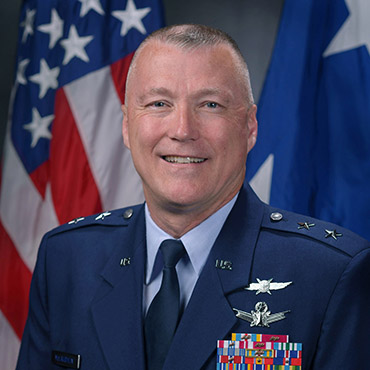Cybercom touts attacks on ISIS
Military officials told the House Armed Services Committee that the hacking campaign against Islamic State has been a good testing ground for U.S. Cyber Command's ability to support combatant commands.

Lt. Gen. James McLaughlin said the campaign against Islamic State's communication networks has demonstrated that cyber operations can be brought to bear on real-world challenges.
U.S. Cyber Command's ongoing hacking campaign against the Islamic State has shown that the command's hackers are well equipped and organized to support kinetic military strikes against the terrorist group, the command's deputy told Congress.
Cyber Command's digital operations against IS, which have intensified in recent months, have reinforced the notion that "the way we're creating our teams, the expertise within those teams, and how they plug into our command and control planning processes...is working," Lt. Gen. James "Kevin" McLaughlin said during a House Armed Services Committee hearing on June 22.
Staffers from the Office of the Secretary of Defense attend twice-a-week briefings on cyber operations, McLaughlin said. "We've learned how important that broader team is," he added. "Some people might not realize how closely coupled we are from that perspective."
Although Cyber Command declared full operational capability more than five years ago, staffing the command has been an arduous process complicated by questions about how best to organize the force. The digital assault on IS has been an opportunity to work out the organizational kinks.
The hacking campaign is "establishing a solid foundation on which to expand the scale and effectiveness of our operations," Brig. Gen. Charles Moore, the Joint Chiefs of Staff's deputy director of global operations, told lawmakers. The Joint Staff and Cyber Command are working closely to bring cyber options to the table in support of other U.S. military operations and not just the fight against IS, he added.
Moore emphasized that Cyber Command needed to better simulate realistic training environments and do more to recruit and retain personnel. Cyber Command's mission force consisted of 4,684 people as of June 10, compared with an eventual target of 6,187 people, McLaughlin said.
Nevertheless, the campaign against IS, which has targeted communication networks in the group's strongholds in Syria and Iraq, has further opened military officials' eyes to the possibilities of cyber operations, according to McLaughlin.
The whole Defense Department is learning that "you don't pigeonhole cyber capabilities against cyber problems" but can instead bring cyber capabilities to bear on physical-world challenges, he added.
For some, however, the Pentagon's cyber war on IS should have started far sooner.
"This is a very important domain, and this terrorist organization is using cyber in a way that we've never seen other terrorist organizations use before," Rep. Martha McSally (R-Ariz.) told defense officials. "What took so long?"
Thomas Atkin, acting assistant secretary of Defense for homeland defense and global security, replied that cyber operations against IS likely began before they were publicized.
"Why isn't the internet shut down in Raqqa?" McSally asked, referring to the group's de facto capital in Syria.
"There always is a balance between collecting information and shutting it down," Atkin said, adding that the right of Syrian and Iraqi citizens to access the internet is also a factor in decisions to target networks.
Despite all the public speculation about the group's cyber capabilities, McLaughlin has said it is relatively unsophisticated.
IS has "lots of aspirations to be [a] cyber actor, but...most of our cyber activities we're doing broadly in the [Defense Department] can defend against [IS] as a cyberthreat," he said recently.
NEXT STORY: Senate bill would require VA to stop using SSNs





